If Derek Stefureac ever doubts that his improbable accomplishments of the past several years really happened, a few memory-jogging objects around his home can offer tangible proof.
There’s the running shoe with a hole in the toe, caused by Stefureac — diagnosed in 2011 with multiple sclerosis — dragging his foot along the course during his second half-marathon.
There’s the container of used hypodermic syringes — hundreds of them — from injections the admittedly needle-phobic Stefureac administers as part of his treatment regimen. 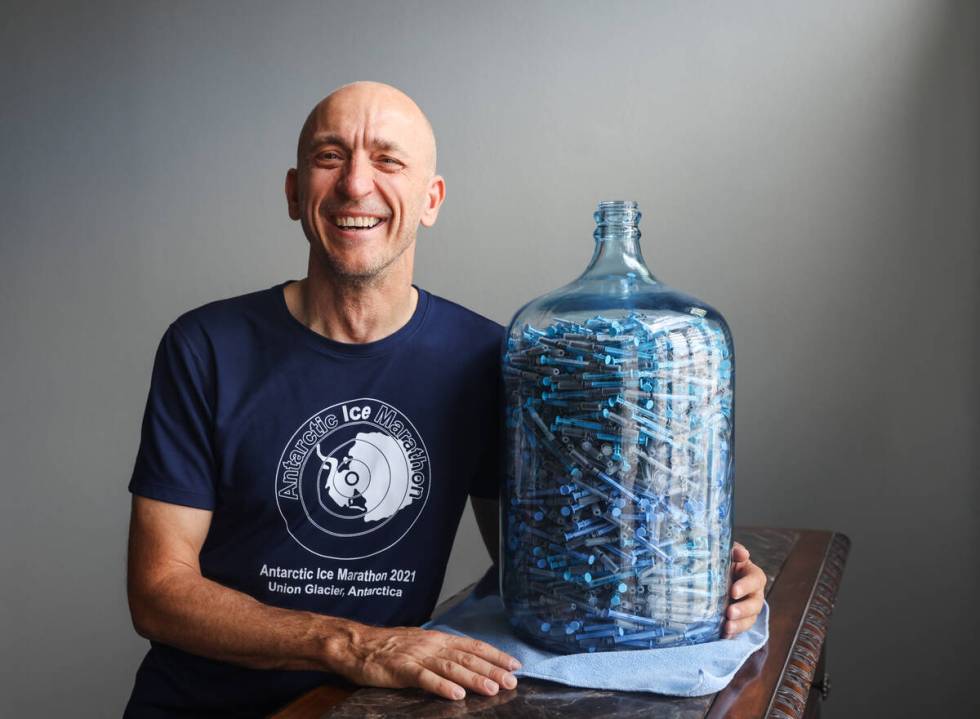
But Stefureac’s most significant mementos could be the finish-line photos, number tags and medals from running more than 35 marathons since being diagnosed with MS.
While running began as a means of combating the effects of the disease, it has become a passion for the 52-year-old Las Vegan. In June, at a race in Brisbane, Australia, Stefureac completed his objective of running a marathon on all seven continents, from Antarctica to South America.
And even if he’s too humble to brag, he’s happy to let his accomplishments serve as inspiration for anybody with MS — and proof that hurdles such as a dragging foot or daily needle stick can be overcome.
Managing MS
Multiple sclerosis is a progressive neurological disease in which the immune system attacks parts of the brain and spinal cord, according to Dr. Le Hua, director of the Mellen Program for Multiple Sclerosis at the Cleveland Clinic Lou Ruvo Center for Brain Health.
Symptoms vary depending on where the damage is occurring. But they may include blurred vision, loss of balance, numbness or tingling in the legs and difficulty walking, as well as cognitive impairment, Hua says. 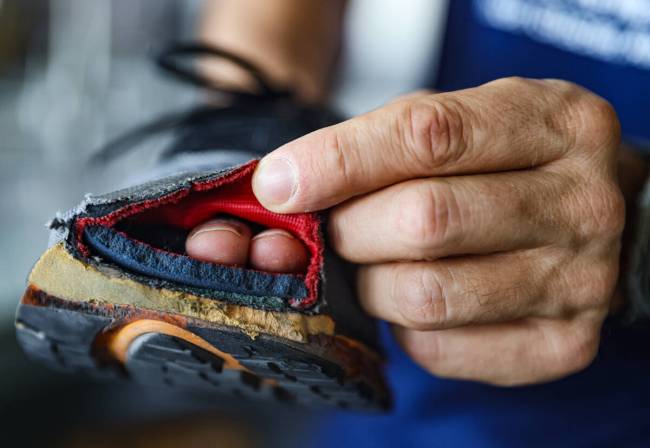
Symptoms can last for days, weeks or even months at a time, Hua says, adding that they can also “come and go,” fluctuate or become continually worse.
Onset of the disease can occur at any age but is most common between 20 and 40, Hua explains. “You do see pediatric cases, and then you do see an increase in the number of people over the age of 50 who have MS.”
The disease cannot be cured, but it can be managed. There have been significant breakthroughs in treating MS since about 2010, Hua said, and there are now more than 25 medicines that can alter the outcome of the disease “so you do not see the disability we have seen in the past.”
‘An empty feeling’
Stefureac moved from suburban Detroit to Las Vegas in 2000 to perform with a friend in a comedy show. They worked for about four years, until Stefureac, seeking a more stable occupation to provide for his daughter, put his electrical engineering degree to work, eventually starting his own firm.
While at work in November 2010, Stefureac felt his left side become numb, starting at the toes and moving up the side of his body.
“I was numb and rigid. I couldn’t move,” he says. “It went away probably within a minute — but it was a long minute.”
Stefureac suspected that he was having a stroke. When the effects subsided, he canceled the 911 call that had been made but had a colleague take him to an urgent care center. 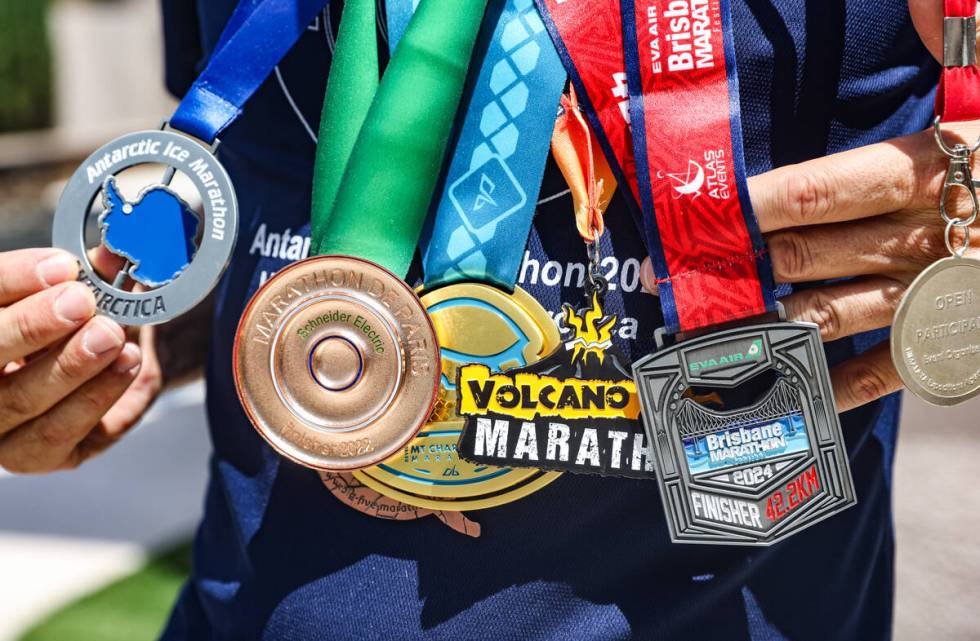
Over the next few months, Stefureac underwent testing to determine what had happened.
“I don’t have strong memories,” he says of that time. He consoled himself with the thought that the attack, whatever it was, seemed to be a one-off occurrence and that at least he had sought medical care quickly.
“I think I attached myself more to the position of, I only had one episode,” he says. “I had no idea what it might be, but I’m a pretty optimistic person, so I didn’t do too much thinking about it.”
Then in March 2011, an MRI revealed lesions on Stefureac’s brain, leading to a diagnosis of MS.
“When I got the diagnosis I felt an empty feeling in my stomach,” he says. “I didn’t know about MS, but I knew that it was not good.”
Taking up running
Stefureac has suffered more episodes since then, but “nothing as bad as the first one.”
He devotes himself to a treatment regimen that includes self-administered shots several times a week. Just as important: He altered his lifestyle to improve his diet and exercise habits, which can help mitigate disability from the disease.
Stefureac was in fairly good shape when that first episode came, but he wasn’t terribly rigorous about eating well or working out. Lunch usually was McDonald’s or Jimmy John’s, he says. He smoked cigarettes. And while he didn’t consider himself “super-overweight,” he acknowledges that he could have stood to drop a few pounds. 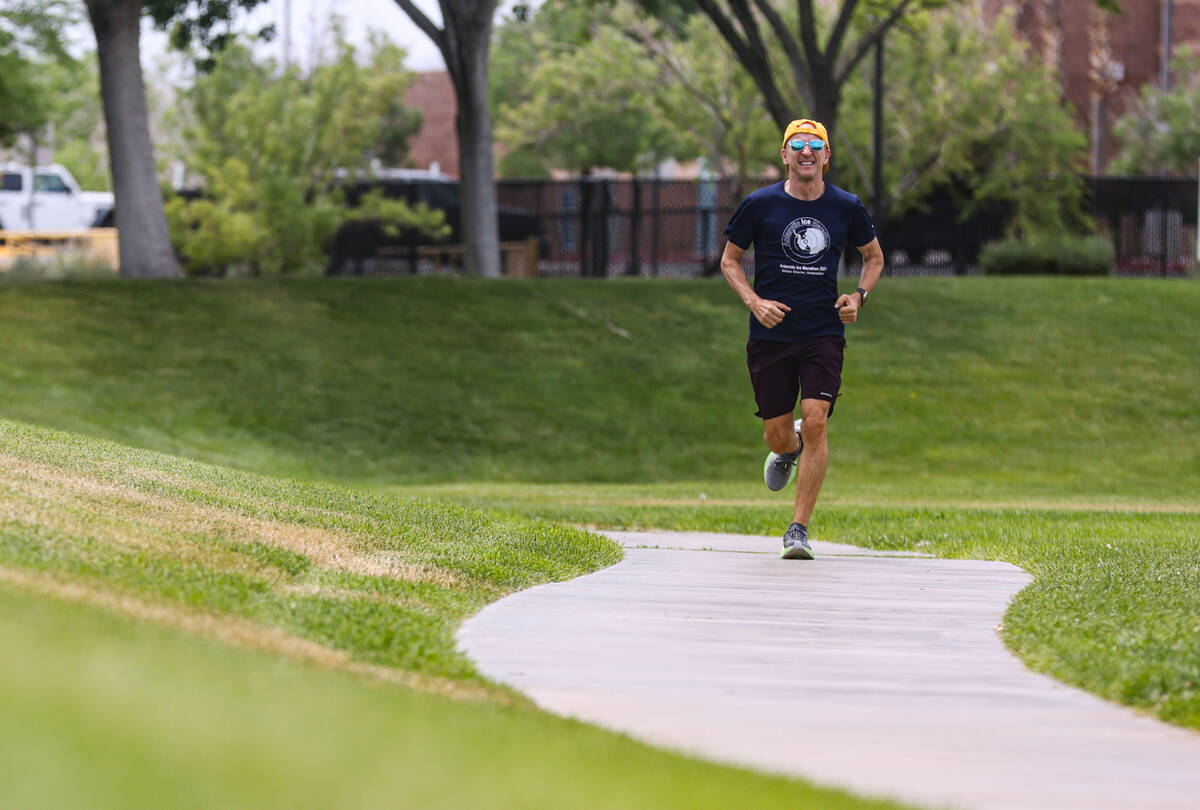
Looking for a suitable physical activity to pursue, Stefureac turned to running. He never had considered himself a serious runner — he had competed in only one organized race his entire life, when he was 11 — but began running casually. It was slow going at first. Stefureac observed that his foot would drag at times and that he’d feel numbness in his arm and leg.
But, he says, “as I did more, I could run 2 miles before it got numb.”
As he continued to pound out miles, “I wanted to have some sort of fitness goal,” Stefureac says. And, figuring that he was clocking the miles anyway, “I thought I should run a half-marathon.”
In October 2016, he gave it a shot, “and I couldn’t make it to the finish line,” Stefureac says. “I walked, but I finished it.”
For his second half-marathon in December 2016, he ran the whole way, even if it did create that hole in his shoe.
All seven continents
In April 2018, Stefureac completed his first full marathon and soon came up with an audacious goal: To run a marathon on every continent.
He began by using that first marathon, on Mount Charleston, to represent North America.
Then came races in more exotic locales.
In December 2021, Stefureac ran the Antarctic Ice Marathon at Union Glacier, Antarctica — “I didn’t think I’d ever do anything cooler or more exciting than that,” he says — and, in April 2022, did the Paris Marathon.
He traveled to Chile for a high-altitude marathon in November 2022 and to Nepal in May 2023 for a run at the Mount Everest base camp.
Then Stefureac ran a marathon through a South Africa game preserve in June 2023.
Finally, on June 2 of this year, he ran the Brisbane Marathon, completing his continental quest.
On July 30, Stefureac added a race at the North Pole to his list of accomplishments, and he plans to run the Boston Marathon in April.
‘Unbelievable benefits’
Stefureac’s international athletic quest has drawn attention from friends and family, many of whom marvel at what he’s done. College pals on Facebook remember his days of longer hair, Marlboro cigarettes and Busch beer, Stefureac says, and think it’s “kind of crazy” that he’s running marathons.
He’d mostly agree, adding that without MS his life probably wouldn’t have changed much.
Stefeurac says he has reaped “unbelievable benefits” from running. He feels healthy and even noticed that when he began to run, “everything started to go well in my life, too. It was such a positive experience. It was like I needed to do something like that. And it was fun.
“I’m healthier than I’ve ever been in my whole life. It shocks people when they find out I have MS.”
‘I’d like to be inspirational’
On a day-to-day basis, MS is something he’s aware of, Stefeurac says, but nothing that he considers debilitating. He adds that it has been years since he’s had an episode. 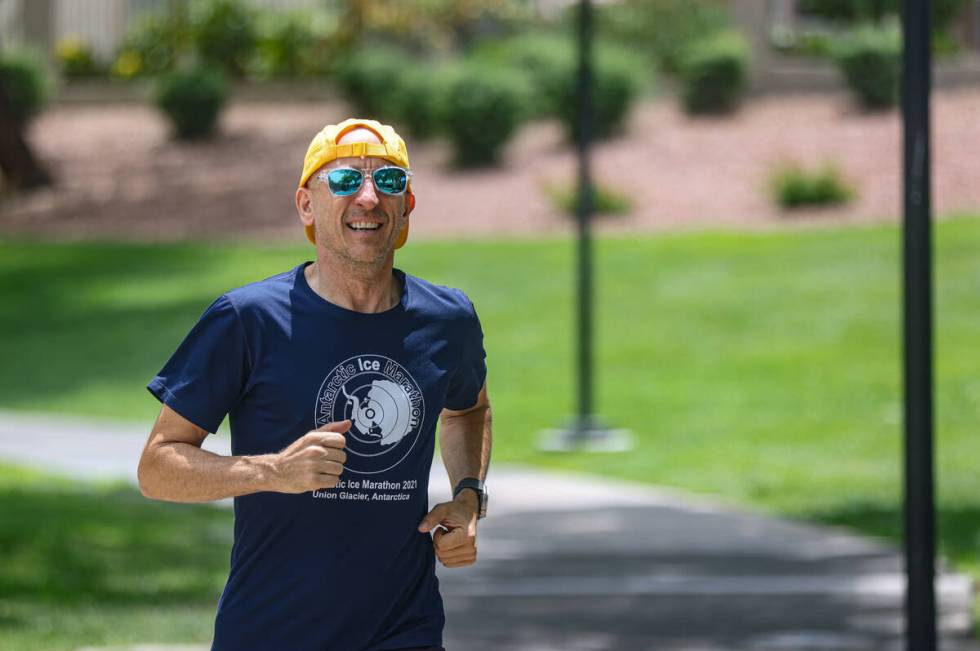
Hua says that treatment for MS focuses primarily on preventing new attacks, addressing symptoms and reducing the risk of disability.
“The majority of patients are people like Derek who live full lives,” she says, adding that, in Derek’s case, early intervention has “really changed the course of the disease.”
That’s a key message, Hua says: “People might be afraid (to see a doctor), and we want to dispel that fear.”
Stefureac agrees, and he hopes that others can learn from his example.
“It’s a progressive disease and a mysterious one, too,” he says. “There are a lot of things I don’t know. I think I just want to be a good example.
“At the moment I got diagnosed, my heart sank. I didn’t really know. So it’s really frightening. But after I started to get past that … I’d like to be inspirational.”
And his message? “We are all capable of more than we think.”












